
Find A Professional
More Items From Ergsy search
-

How the Shortage of GPs is Affecting Patient Care Across the UK
Relevance: 100%
-

Dementia Care at Colten Care
Relevance: 96%
-

Dr Hilary Jones on Residential Care PART 2.
Relevance: 95%
-
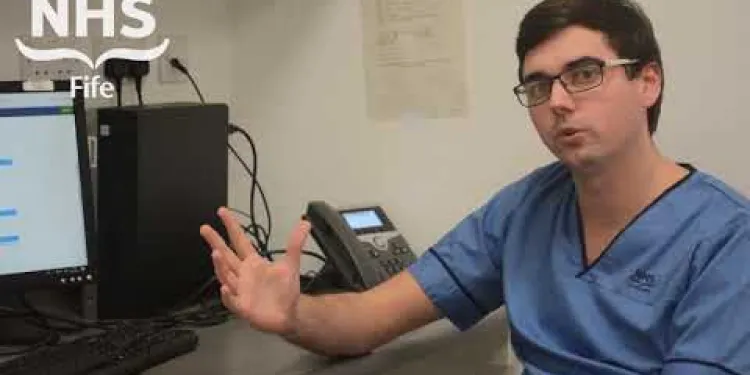
The Delirium Question on Patientrack
Relevance: 95%
-
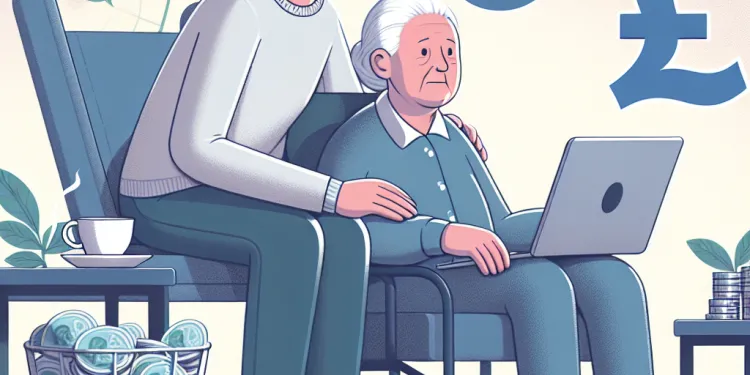
What role do carers play for those living with dementia?
Relevance: 87%
-

Dr Hilary Jones shares his professional and personal thoughts on Colten Care
Relevance: 86%
-
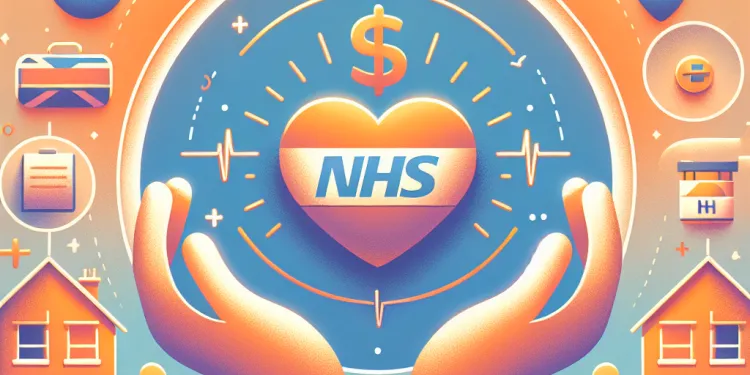
What is end of life care?
Relevance: 81%
-

The role of care homes dedicated to caring for people living with dementia and memory loss
Relevance: 79%
-

How can I plan for future care needs?
Relevance: 73%
-

Colten Care values - montage of all 5 short films
Relevance: 71%
-
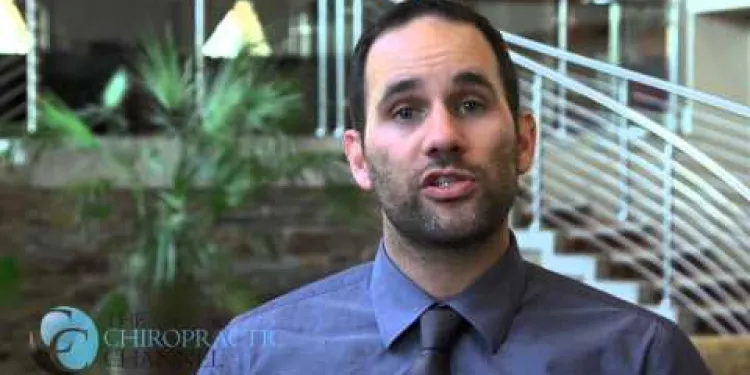
Chiropractic Care on the NHS
Relevance: 69%
-

Can chiropractic care help with arthritis?
Relevance: 65%
-
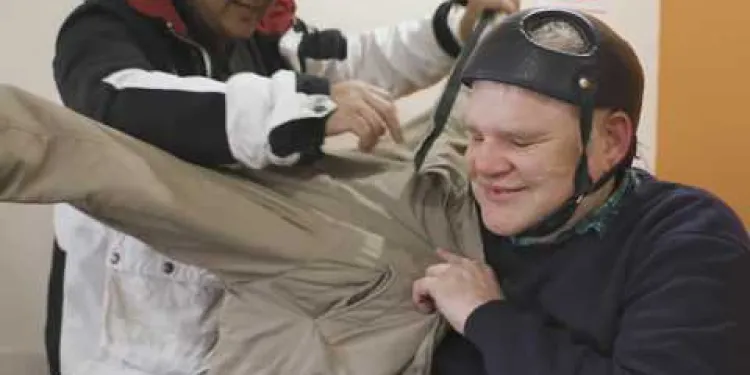
Transforming Care for people with Learning Disabilities and/ or Autism: Peter's Story
Relevance: 63%
-
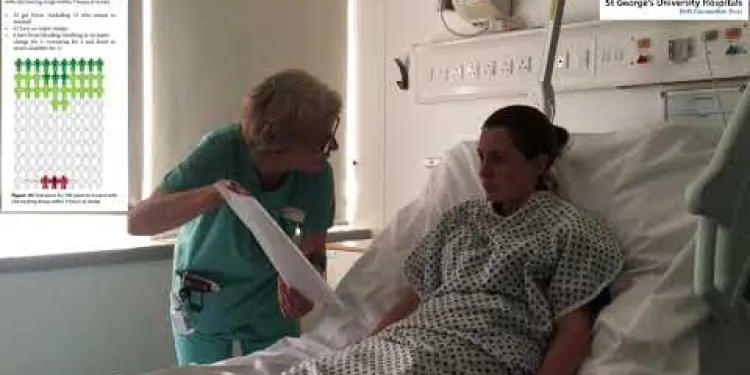
Gaining consent from stroke patients
Relevance: 61%
-

Child Care Proceedings | Family Law
Relevance: 60%
-

NHS Utilizes AI to Prioritize High-Risk Patients on Waiting Lists
Relevance: 58%
-

Dr Hilary Jones on Residential Care PART 1.
Relevance: 55%
-

Can children benefit from chiropractic care?
Relevance: 55%
-

NHS-led Provider Collaboratives: improving mental health, learning disability and autism services
Relevance: 52%
-
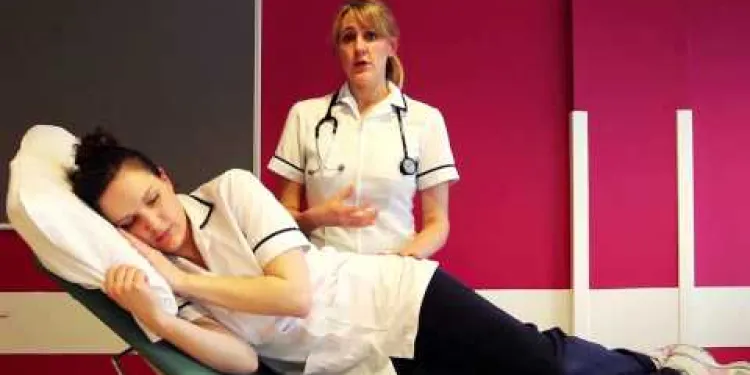
Positioning for Breathless Patient
Relevance: 52%
-

Are there NHS dentists available for patients with special needs?
Relevance: 50%
-

Do not attempt cardiopulmonary resuscitation (DNACPR)
Relevance: 50%
-
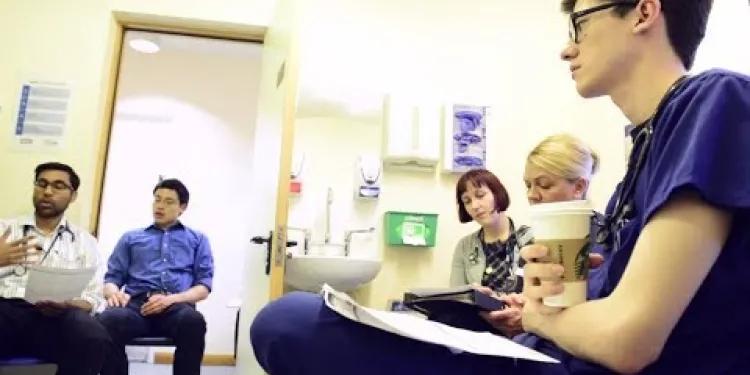
Clinical Handover - Care 24/7
Relevance: 50%
-
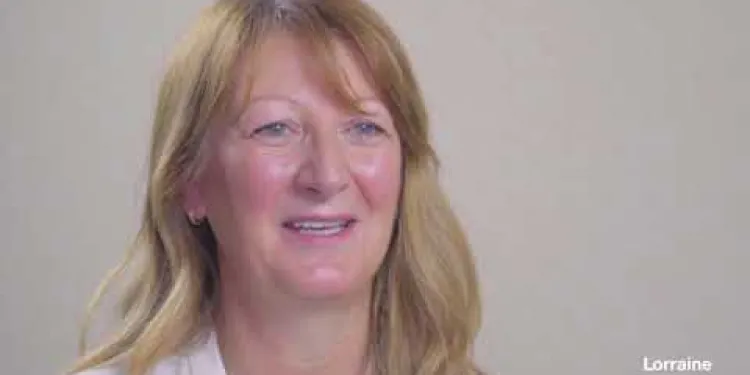
Getting help and support with frontotemporal dementia (FTD) (part 2/3)
Relevance: 49%
-

How do I know if I'm eligible for free NHS dental care?
Relevance: 48%
-

Fallsafe - Put the patient first. Preventing falls in Hospital.
Relevance: 48%
-
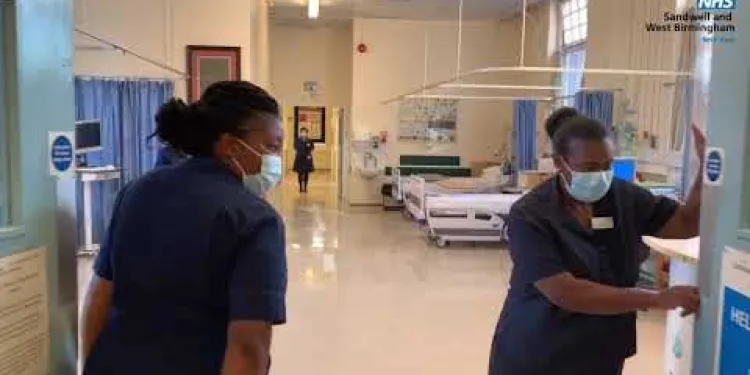
Tour of the Sickle Cell and Thalassaemia Unit at City Hospital | SCaT
Relevance: 47%
-

Inpatient Surgery at North Bristol NHS Trust
Relevance: 46%
-
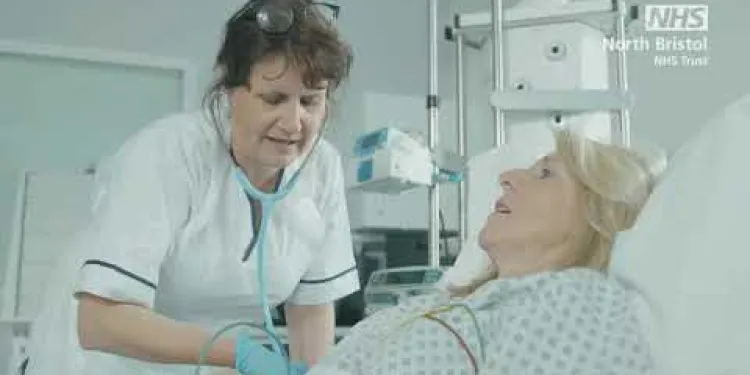
Your stay on the Intensive Care Unit at North Bristol NHS Trust
Relevance: 45%
-

Impact of Housing Shortage on Local Communities
Relevance: 43%
-
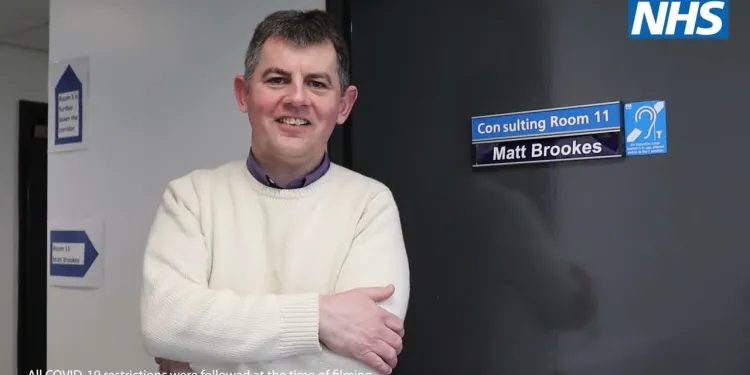
What is a social prescriber, and how do they support general practice?
Relevance: 43%
-
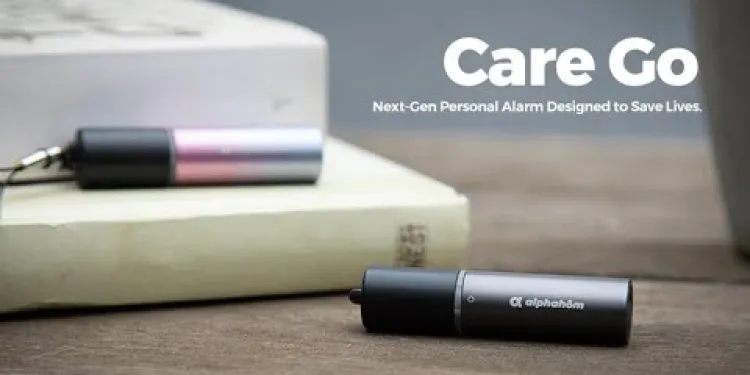
Bluetooth Tracker with Personal Alarm
Relevance: 43%
-

Do I need a referral to see a chiropractor?
Relevance: 41%
-
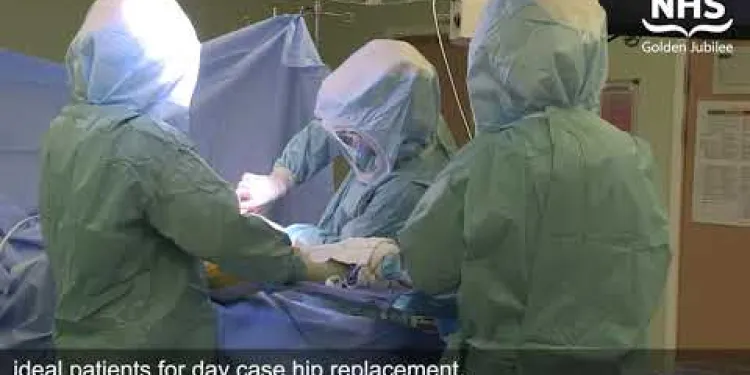
Same day discharge for NHS Golden Jubilee’s hip replacement patients
Relevance: 41%
-

NHS to Expand Digital Health Services to Reduce Appointment Backlogs
Relevance: 41%
-
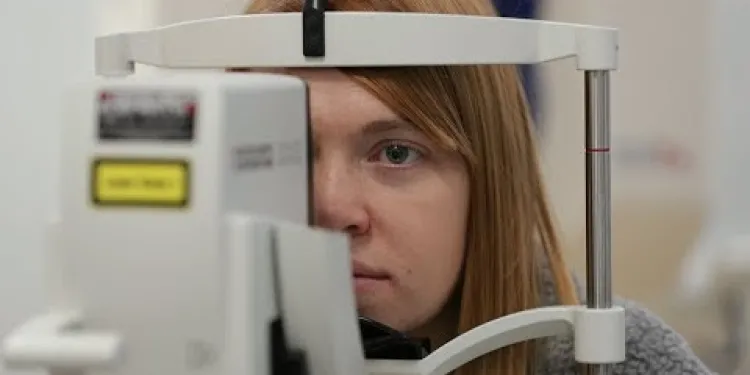
Patient voices in type one diabetes - I would have done things differently.
Relevance: 40%
-

Vale Stroke Unit
Relevance: 39%
-

What areas of the NHS are using AI in 2024?
Relevance: 39%
-

NHS Ayrshire and CVO East Ayrshire - ‘Feet First – Podiatry Services in East Ayrshire’
Relevance: 39%
-

Sickle cell patients share their experiences with the last NHS Chief Executive Amanda Pritchard
Relevance: 39%
How the Shortage of GPs is Affecting Patient Care Across the UK
Introduction
The shortage of General Practitioners (GPs) in the UK is a growing concern, impacting patient care significantly. This shortfall is contributing to increased pressure on the NHS, lengthening waiting times, and affecting the quality of care patients receive. Understanding the implications of this shortage is crucial for addressing the challenges faced by the UK’s healthcare system.Increased Waiting Times
One of the most noticeable effects of the GP shortage is the increase in waiting times for patients. With fewer doctors available, patients are finding it harder to secure appointments promptly. This delay can be particularly problematic for those needing urgent care or those requiring regular check-ups for chronic conditions. Longer waiting times can lead to the worsening of health issues and increase the strain on other parts of the healthcare system, such as emergency services.Impact on Quality of Care
The shortage of GPs also affects the quality of care patients receive. With increased workloads, GPs may have less time to spend with each patient, limiting their ability to thoroughly assess health issues and provide detailed consultations. This can lead to misdiagnoses or insufficient treatment. Additionally, continuity of care suffers as patients may see different doctors each visit, disrupting relationship-building and understanding of individual health needs.Workforce Burnout
The GP shortage has significant consequences for the remaining workforce, contributing to high levels of stress and burnout. GPs are stretched thin, often working longer hours and managing unsustainable patient loads. Burnout not only impacts the doctors’ well-being but also affects patient care, as exhausted practitioners may struggle to perform optimally. This environment makes it challenging to retain staff and dissuades new doctors from pursuing a career in general practice, aggravating the shortage further.Policy and Solutions
Addressing the GP shortage requires immediate and long-term policy interventions. Increasing the number of GP training places and offering incentives for retention are crucial steps. Furthermore, modernizing primary care practices and implementing technology can improve efficiency and alleviate some of the burdens on GPs. Collaborative approaches, including increased use of nurse practitioners and other healthcare professionals, can also help mitigate the impacts on patient care.Conclusion
The shortage of GPs in the UK presents significant challenges to patient care. From increased waiting times to diminished care quality and workforce burnout, the effects are widespread. Strategic interventions and policy changes are needed to bolster the GP workforce and ensure that patients receive the timely and high-quality care they deserve. Addressing these issues is vital for the sustainability and effectiveness of the NHS in the face of growing healthcare demands.Frequently Asked Questions
What is causing the shortage of GPs in the UK?
The shortage of GPs in the UK is primarily due to an ageing workforce leading to retirements, increasing workload and stress, and insufficient numbers of new doctors choosing general practice.
How is the GP shortage affecting patient wait times?
Patients are experiencing longer wait times for appointments due to the shortage of GPs, sometimes waiting weeks for a non-urgent appointment.
Are rural areas more affected by the GP shortage than urban areas?
Yes, rural areas often have more difficulty attracting GPs, leading to more acute shortages and longer wait times compared to urban areas.
What impact is the GP shortage having on the quality of patient care?
The quality of patient care may suffer due to shorter consultation times and increased pressure on GPs, making it difficult to provide thorough care.
How are GP practices managing the shortage of doctors?
GP practices are using locum doctors, expanding the roles of nurses and other healthcare professionals, and using telephone consultations to manage workloads.
Is telemedicine helping to alleviate the GP shortage?
Telemedicine is helping to some extent by providing remote consultations, but it's not a complete solution as it doesn't replace the need for in-person visits.
What is the government doing to address the GP shortage?
The government has launched initiatives to train more GPs, retain existing doctors, and make general practice more attractive to medical students.
How does the GP shortage affect emergency services?
Without adequate GP services, more patients are turning to A&E departments for non-emergency issues, increasing pressure on emergency services.
Can pharmacists help alleviate the GP shortage issue?
Pharmacists can help by offering advice and treatment for minor ailments, reducing demand on GPs for these issues.
Are nurse practitioners being used more due to the GP shortage?
Yes, nurse practitioners are being utilized more extensively to handle routine cases and help reduce the burden on GPs.
What are the long-term effects of the GP shortage on public health?
Long-term effects can include increased chronic disease rates due to delayed diagnosis and treatment, and greater strain on secondary health services.
How does the GP shortage influence mental health services?
The shortage exacerbates mental health issues as patients face delays in receiving diagnoses and appropriate referrals for mental health services.
What role do GP receptionists play in the current shortage?
GP receptionists play a crucial role in managing appointments and directing patients to the appropriate healthcare professional, helping to optimize GP time.
Are there sufficient GP trainees in the pipeline to address the shortage?
While there are efforts to increase the number of GP trainees, it will take time before they are fully qualified to work independently, so immediate shortages remain.
How does the GP shortage affect continuity of care for patients?
Patients may struggle to see the same GP consistently, leading to fragmented care and challenges in managing ongoing health issues effectively.
Useful Links
- Ergsy carfully checks the information in the videos we provide here.
- Videos shown by Youtube after a video has completed, have NOT been reviewed by ERGSY.
- To view, click the arrow in centre of video.
- Most of the videos you find here will have subtitles and/or closed captions available.
- You may need to turn these on, and choose your preferred language.
- Go to the video you'd like to watch.
- If closed captions (CC) are available, settings will be visible on the bottom right of the video player.
- To turn on Captions, click settings .
- To turn off Captions, click settings again.
More Items From Ergsy search
-

How the Shortage of GPs is Affecting Patient Care Across the UK
Relevance: 100%
-

Dementia Care at Colten Care
Relevance: 96%
-

Dr Hilary Jones on Residential Care PART 2.
Relevance: 95%
-

The Delirium Question on Patientrack
Relevance: 95%
-

What role do carers play for those living with dementia?
Relevance: 87%
-

Dr Hilary Jones shares his professional and personal thoughts on Colten Care
Relevance: 86%
-

What is end of life care?
Relevance: 81%
-

The role of care homes dedicated to caring for people living with dementia and memory loss
Relevance: 79%
-

How can I plan for future care needs?
Relevance: 73%
-

Colten Care values - montage of all 5 short films
Relevance: 71%
-

Chiropractic Care on the NHS
Relevance: 69%
-

Can chiropractic care help with arthritis?
Relevance: 65%
-

Transforming Care for people with Learning Disabilities and/ or Autism: Peter's Story
Relevance: 63%
-

Gaining consent from stroke patients
Relevance: 61%
-

Child Care Proceedings | Family Law
Relevance: 60%
-

NHS Utilizes AI to Prioritize High-Risk Patients on Waiting Lists
Relevance: 58%
-

Dr Hilary Jones on Residential Care PART 1.
Relevance: 55%
-

Can children benefit from chiropractic care?
Relevance: 55%
-

NHS-led Provider Collaboratives: improving mental health, learning disability and autism services
Relevance: 52%
-

Positioning for Breathless Patient
Relevance: 52%
-

Are there NHS dentists available for patients with special needs?
Relevance: 50%
-

Do not attempt cardiopulmonary resuscitation (DNACPR)
Relevance: 50%
-

Clinical Handover - Care 24/7
Relevance: 50%
-

Getting help and support with frontotemporal dementia (FTD) (part 2/3)
Relevance: 49%
-

How do I know if I'm eligible for free NHS dental care?
Relevance: 48%
-

Fallsafe - Put the patient first. Preventing falls in Hospital.
Relevance: 48%
-

Tour of the Sickle Cell and Thalassaemia Unit at City Hospital | SCaT
Relevance: 47%
-

Inpatient Surgery at North Bristol NHS Trust
Relevance: 46%
-

Your stay on the Intensive Care Unit at North Bristol NHS Trust
Relevance: 45%
-

Impact of Housing Shortage on Local Communities
Relevance: 43%
-

What is a social prescriber, and how do they support general practice?
Relevance: 43%
-

Bluetooth Tracker with Personal Alarm
Relevance: 43%
-

Do I need a referral to see a chiropractor?
Relevance: 41%
-

Same day discharge for NHS Golden Jubilee’s hip replacement patients
Relevance: 41%
-

NHS to Expand Digital Health Services to Reduce Appointment Backlogs
Relevance: 41%
-

Patient voices in type one diabetes - I would have done things differently.
Relevance: 40%
-

Vale Stroke Unit
Relevance: 39%
-

What areas of the NHS are using AI in 2024?
Relevance: 39%
-

NHS Ayrshire and CVO East Ayrshire - ‘Feet First – Podiatry Services in East Ayrshire’
Relevance: 39%
-

Sickle cell patients share their experiences with the last NHS Chief Executive Amanda Pritchard
Relevance: 39%